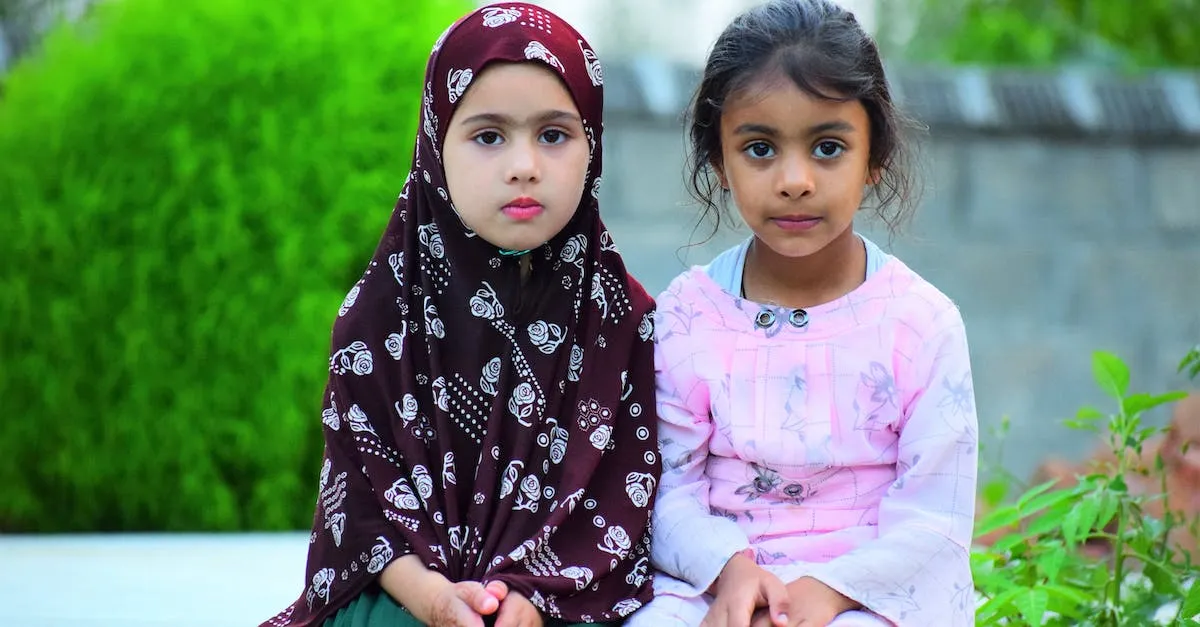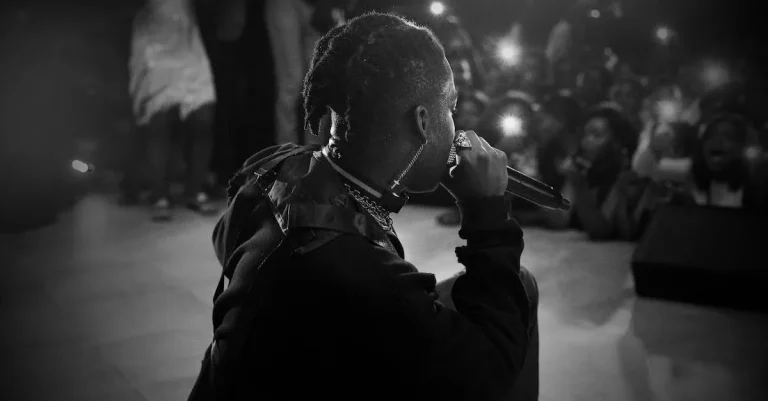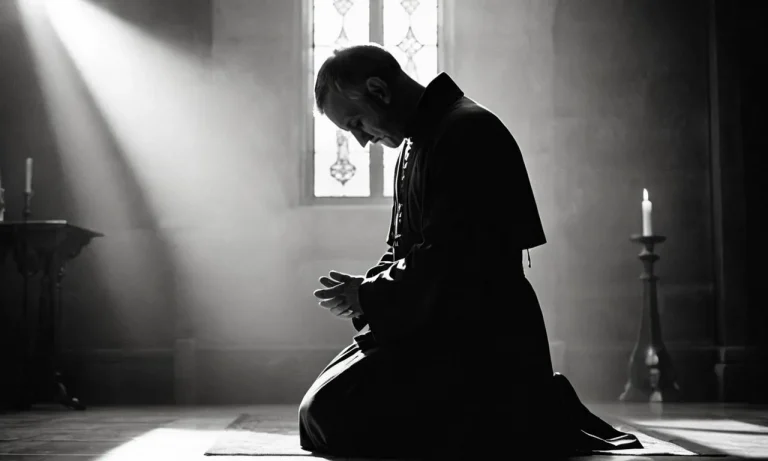Can You Be Muslim And Christian?
Whether it’s possible to be both Muslim and Christian is a complex question that many people ponder. At first glance, it may seem impossible – after all, Islam and Christianity are different religions with distinct beliefs, sacred texts, and practices.
However, some aspects of the two faiths have significant overlap, leading some individuals to simultaneously identify with both traditions.
If you’re short on time, here’s a quick answer to your question: While rare, it is possible for someone to consider themselves both Muslim and Christian at the same time, drawing meaning and inspiration from each tradition.
The Core Beliefs and Values of Islam and Christianity
Monotheism
Both Islam and Christianity are monotheistic religions, meaning they believe in the existence of only one God. In Islam, this belief is expressed through the Shahada, the declaration of faith that states “There is no god but Allah, and Muhammad is his messenger.”
Christianity, on the other hand, professes belief in the Holy Trinity, which consists of God the Father, Jesus Christ the Son, and the Holy Spirit. While the concept of the Trinity is unique to Christianity, both religions emphasize the oneness and sovereignty of God.
Moral Codes and Ethics
Islam and Christianity share many common moral codes and ethical principles. Both religions advocate for kindness, justice, honesty, and compassion towards others. They both promote the idea of treating others with respect and dignity.
For example, both Islam and Christianity emphasize the importance of helping the poor and needy, as well as being honest in all aspects of life. While there may be some differences in the specific rules and practices, the fundamental values of morality and ethics are shared between the two religions.
Reverence for Jesus and Other Prophets
While Christianity places Jesus Christ at the center of its beliefs, Islam also holds a high reverence for Jesus as a prophet. In fact, Jesus is considered one of the most important prophets in Islam, along with Muhammad.
Muslims believe that Jesus was a messenger of God and that he performed miracles. However, Islam differs from Christianity in that it does not recognize Jesus as the Son of God or as divine. Nonetheless, both religions acknowledge the significance of Jesus and other prophets in their respective faiths.
Practices and Rituals in Islam and Christianity
Prayer and Worship
Prayer and worship are central aspects of both Islam and Christianity. In Islam, Muslims are required to perform five daily prayers, known as Salah. These prayers involve specific physical movements and recitation of verses from the Quran.
The Friday congregational prayer, known as Jummah, is also an important ritual for Muslims.
Similarly, in Christianity, prayer is considered a fundamental way to communicate with God. Christians are encouraged to pray individually and gather in churches for communal worship. The Lord’s Prayer, taught by Jesus, is one of the most widely known and recited prayers in Christianity.
Fasting and Charity
Fasting is observed as a significant practice in both Islam and Christianity. Muslims fast during the holy month of Ramadan, abstaining from food and drink from dawn until sunset. This period of fasting is seen as a time of self-reflection, increased devotion, and empathy for those less fortunate.
In Christianity, fasting is commonly practiced during the season of Lent, leading up to Easter. Christians may choose to give up certain foods or activities as a form of self-discipline and spiritual reflection.
Additionally, both Islam and Christianity emphasize the importance of charity and giving to those in need.
Life Rituals and Rites of Passage
Both Islam and Christianity have various rituals and rites of passage that mark significant milestones in a person’s life. In Islam, the birth of a child is celebrated with a naming ceremony, and circumcision is often performed on male infants.
The Hajj pilgrimage to Mecca is considered a major milestone for Muslims, and marriage is celebrated with a wedding ceremony.
In Christianity, baptism is a common ritual performed to welcome individuals into the faith. Confirmation is another important rite of passage, where individuals publicly affirm their commitment to the Christian faith.
Marriage is also celebrated with a wedding ceremony, and the death of a believer is marked with funeral rites and prayers for the deceased.
It is important to note that while there are similarities in practices and rituals between Islam and Christianity, there are also distinct differences that reflect the unique beliefs and teachings of each religion.
Identity, Culture, and Community
When it comes to the question of whether one can be both Muslim and Christian, it is important to consider the complex interplay between identity, culture, and community. These three elements are deeply intertwined and can have a profound impact on an individual’s beliefs and practices.
Overlapping Cultural Traditions
One of the reasons why some individuals may identify as both Muslim and Christian is because of the overlapping cultural traditions that exist within their communities. In many parts of the world, such as the Middle East, Africa, or Southeast Asia, there are regions where Islam and Christianity have coexisted for centuries.
As a result, individuals in these communities may have been exposed to both religious traditions from a young age and may incorporate elements of both into their daily lives.
This blending of cultural traditions can manifest in various ways, such as celebrating holidays and festivals from both religions, participating in rituals and practices from both faiths, or even adopting names and symbols that are significant in both Islam and Christianity.
It is important to note that this blending does not necessarily mean that individuals are adhering strictly to the theological doctrines of both religions, but rather, they are embracing the cultural aspects that resonate with their personal experiences.
Interfaith Families and Marriages
Another factor that can contribute to the idea of being both Muslim and Christian is interfaith families and marriages. In today’s globalized world, it is not uncommon for individuals from different religious backgrounds to form relationships and start families.
In such cases, couples may face the challenge of navigating their differing religious identities and finding a way to honor and respect both traditions.
Interfaith families often find creative ways to incorporate both Islam and Christianity into their lives. This can include attending religious services and events from both faiths, raising their children with an understanding and appreciation for both religions, and fostering an environment of religious tolerance and understanding within their homes.
Conversion and Syncretism
Conversion and syncretism are also factors to consider when exploring the possibility of being both Muslim and Christian. Some individuals may have converted from one religion to another but still maintain certain aspects of their previous faith.
This can create a unique blend of beliefs and practices that reflect their personal spiritual journey.
Additionally, syncretism, which refers to the merging of different religious beliefs and practices, can also play a role in the idea of being both Muslim and Christian. While syncretism is not universally accepted within either religion, there are instances where individuals may incorporate elements from both Islam and Christianity into their personal belief systems.
It is important to note that the concept of being both Muslim and Christian is a complex and nuanced one. While some individuals may identify as such, it is not a universally accepted or recognized religious category.
The blending of religious traditions and identities is a deeply personal and individual journey, and it is ultimately up to each person to define their own spiritual path.
Theological Challenges and Differences
Being both Muslim and Christian presents numerous theological challenges and differences that need to be addressed. These challenges primarily stem from contrasting beliefs regarding the nature of Jesus, interpretations of scripture, and concepts of salvation and the afterlife.
The Divine Nature of Jesus
One of the key theological differences between Islam and Christianity revolves around the divine nature of Jesus. Muslims believe that Jesus was a prophet and a messenger of God, but not divine. On the other hand, Christians view Jesus as the Son of God and believe in his divinity.
This fundamental difference in understanding Jesus’ nature can create conflicts and difficulties for those trying to reconcile the two faiths.
Interpreting Scripture
Another significant challenge when trying to be both Muslim and Christian lies in the interpretation of religious texts. The Quran is considered the holy scripture in Islam, while Christians look to the Bible as their sacred text.
These texts contain different teachings, stories, and moral guidelines, leading to contrasting interpretations. Reconciling these interpretations can be complex and may require an in-depth understanding of both religious traditions.
Furthermore, the interpretation of specific passages that mention Jesus in both the Quran and the Bible can differ significantly, leading to theological tensions. For example, the Quran denies that Jesus was crucified, which directly contradicts the Christian belief in the crucifixion and resurrection of Jesus.
Resolving such conflicting interpretations can be a challenging task for those seeking to embrace both faiths.
Salvation and the Afterlife
The concept of salvation and the afterlife is another area where Islam and Christianity diverge. In Islam, salvation is achieved through submission to the will of Allah and the following of the Five Pillars of Islam.
On the other hand, Christians believe in salvation through faith in Jesus Christ and his sacrifice on the cross. The contrasting views on salvation and the afterlife can pose significant theological challenges for individuals trying to navigate both faiths.
It is important to note that being both Muslim and Christian is a complex undertaking that may require deep theological studies, dialogue, and personal reflection. Some individuals may choose to identify as “Muslim Christians” or “Christian Muslims” and attempt to bridge the theological gaps between the two faiths.
However, it is crucial to respect the distinct beliefs and practices of each religion and approach this topic with sensitivity and understanding.
Social Reactions and Practical Implications
When an individual identifies as both Muslim and Christian, they may encounter a range of reactions from their religious communities. Acceptance and rejection are two common responses that can have a significant impact on their personal and social lives.
Some religious communities may embrace the idea of embracing multiple faiths as a way to deepen one’s spiritual journey and promote unity among different religions. On the other hand, some communities may view this as a contradiction and may reject or ostracize individuals who claim to follow both Islam and Christianity.
Acceptance vs Rejection from Religious Communities
The level of acceptance or rejection experienced by individuals who identify as Muslim and Christian may depend on various factors, such as the specific religious community they belong to, their geographical location, and the cultural context in which they live.
In some cases, individuals may find support and understanding from both their Muslim and Christian communities, who recognize the desire to connect with and learn from different religious traditions. However, in more conservative or traditional religious communities, the idea of practicing both Islam and Christianity simultaneously may be met with skepticism or outright rejection.
It is important to note that the reactions from religious communities can have practical implications for individuals who identify as Muslim and Christian. Rejection or exclusion from their religious communities may lead to feelings of isolation, loss of social support, and may even impact their sense of identity.
On the other hand, acceptance and support from religious communities can provide a sense of belonging and encouragement for individuals to explore their unique spiritual path.
Navigating Religious Laws and Expectations
Being Muslim and Christian can also present practical challenges when it comes to navigating religious laws and expectations. Both Islam and Christianity have their own set of beliefs, rituals, and practices that followers are expected to adhere to.
For example, Islam has specific dietary restrictions, prayer rituals, and obligations during the holy month of Ramadan, while Christianity has its own sacraments, worship practices, and moral teachings.
Navigating these religious laws and expectations can be complex for individuals who identify as both Muslim and Christian. They may need to find a balance between the two faiths, respecting the unique practices and beliefs of each tradition.
This could involve seeking guidance from religious leaders, engaging in dialogue with fellow believers, and making personal decisions about how to incorporate both faiths into their daily lives.
Finding an Authentic Spiritual Path
Ultimately, individuals who identify as Muslim and Christian are on a unique spiritual journey of their own. They may be seeking to find a harmonious and authentic path that allows them to honor and practice both faiths in a way that feels meaningful to them.
This journey may involve exploring the teachings and practices of both Islam and Christianity, delving deeper into the shared values and principles that underlie these religions.
It is important for individuals in this situation to give themselves permission to question, learn, and grow in their faith. They may find solace in connecting with other individuals who share similar religious identities or seeking guidance from knowledgeable scholars and spiritual mentors who can provide insights and support along the way.
Ultimately, finding an authentic spiritual path as a Muslim and Christian is a deeply personal and individual process.
Conclusion
In the end, while Islam and Christianity diverge on key theological issues, some individuals do find meaning in both faiths and carve out an identity that synthesizes elements of each. With an open-minded, inclusive approach, carefully examining areas of common ground and respectful debate over differences, those who feel drawn to both Muslim and Christian identities can potentially find an authentic path that nurtures their spirit.








